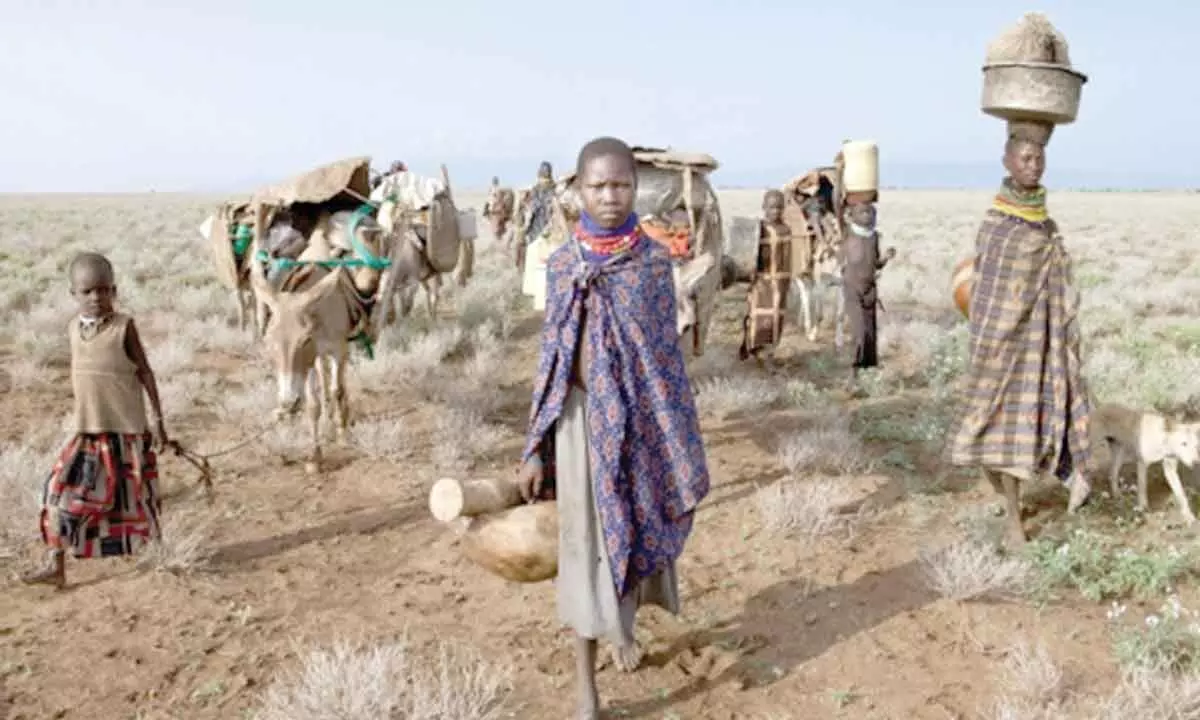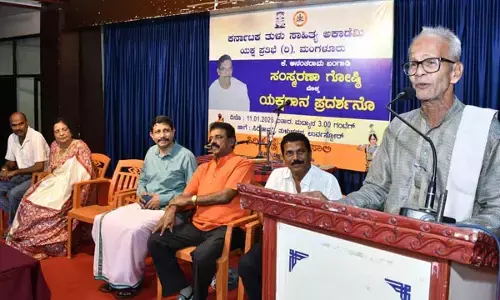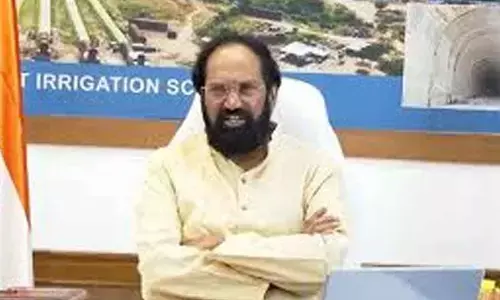Rising inequality risks regional collapse

It is possible to stabilise temperatures below two degrees Celsius (above pre-industrial levels), stabilise the population well below nine billion people, reduce material use and approach an end to extreme poverty globally by 2050. In this scenario, social tension falls, and wellbeing rises throughout the century because of greater income equality
New Delhi: Left unchecked, rising inequality in the next 50 years will lead to increasingly dysfunctional societies, making cooperation to deal with existential threats like climate change more difficult, a ground-breaking analysis said. A new book, 'Earth for All: A Survival Guide for Humanity', however, says the world can still stabilise global temperatures below two degrees Celsius and approach an end to poverty by 2050 by enacting five 'extraordinary turnarounds' that break with current trends.
"We are standing on a cliff edge," said Jorgen Randers, one of the six authors of 'Earth for All' and co-author of 'The Limits to Growth' published 50 years ago. "In the next 50 years, the current economic system will drive up social tensions and drive down wellbeing. We can already see how inequality is destabilising people and the planet."
"Unless there is truly extraordinary action to redistribute wealth, things will get significantly worse. We are already sowing the seeds for regional collapse. Societies are creating vicious cycles where rising social tensions, that are exacerbated by climate breakdown, will continue to lead to a decline in trust. This risks an explosive combination of extreme political destabilisation and economic stagnation at a time when we must do everything we can to avoid climate catastrophes."
Ahead of significant political events such as UNGA and COP 27, Earth4All is launching 'Earth for All: A Survival Guide for Humanity,' which presents the results of a two-year research project, that brought together leading scientists, economic thinkers and a team of 'systems dynamics' computer modelers.
The book builds on the common mantra from social movements calling for "Systems Change Not Climate Change" and "People Not Profit". It lays out what economic systems change really means for civilization and proposes five extraordinary turnarounds that provides a framework for a fair, just, and affordable economic transformation.
The book tackles the fierce debate between advocates for "green growth" and supporters of "degrowth" economies. Sandrine Dixson-Decleve, author and co-president of the Club of Rome, said: "Our economic and financial systems are broken, and we are reaching dangerous levels of inequality. Do we want to create the first trillionaire or do we want to create functional, fair democratic societies? Ultimately, Earth for All is about building societies that value prosperity for all rather than profit for the few on a finite planet fit for the 21st century.
"Let's be clear, a more equal society benefits everyone, even the very rich." The book explores two scenarios beginning in 1980 and ending in 2100. These scenarios entitled Too Little, Too Late and The Giant Leap explore how population, economies, resource use, pollution wellbeing and social tensions might change this century based on decisions made this decade.
In the first pathway, the world continues with the economic policies from the last 40 years. While GDP continues to grow, the rich get richer while the poor fall farther behind, creating extreme inequalities and growing social tensions within and between countries. Political division and lack of trust make it increasingly difficult to address climate and ecological risks.
Global temperatures soar to about 2.5 degrees Celsius by 2100, significantly exceeding the target stipulated in the Paris Agreement. The poorest economies face the most extreme conditions. They struggle to adapt to climate impacts. Later in the century around two billion people will be living in areas that are close to the limits of human habitability.
All societies will be reeling from rolling shocks of extreme heat, drought, crop failure and floods. If the world continues on the 'Too Little, Too Late' pathway, the model shows declining wellbeing globally, by an average of minus 40 per cent in the 2050s than in the 2020s, even in wealthy nations, and suggests it will take until 2100 to eradicate extreme poverty as the poorest economies experience stagnating economic growth.
According to the modelling, world population will peak just under nine billion people around 2050. Per Espen Stoknes, co-author and director of the Centre for Sustainability at Norwegian Business School, said, "In this scenario, the model indicates that regional societal collapse, driven by rising social tensions, food insecurity and environmental degradation, is more likely than today.
"Regional and global crises are often not caused by a single event like one crop failure, but cascading failures made worse by climate change, chronically dysfunctional governments and system failures. We have known shocks were coming our way since 1972, and yet the response has been denial, it is now time to hold governments accountable for the future and push for strong governance models flexible enough to deal with today's complex challenges."
The model offers a solution through a second, achievable path, 'The Giant Leap'.
The authors conclude that it is possible to stabilise temperatures below two degrees Celsius (above pre-industrial levels), stabilise the population well below nine billion people, reduce material use and approach an end to extreme poverty globally by 2050 – a generation earlier than the Too Little, Too Late scenario. In this scenario, social tension falls, and wellbeing rises throughout the century because of greater income equality.
Johan Rockstrom, Director of the Potsdam Institute for Climate Impact Research, commented, "Out of hundreds of potential solutions, we have found five interconnected turnarounds that represent the simplest and most effective solutions that we must start implementing this decade to build economies operating within planetary boundaries by around 2050."
















